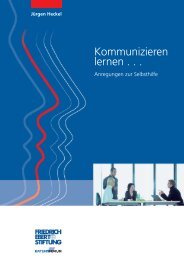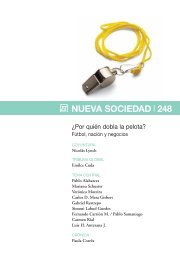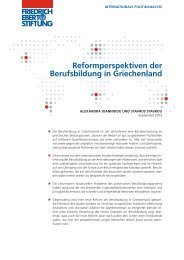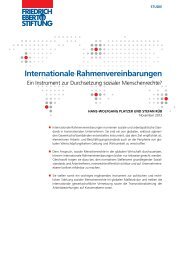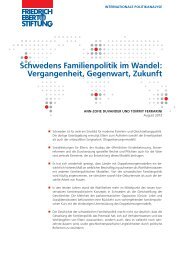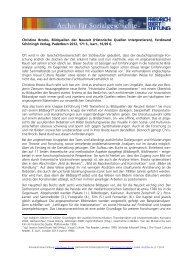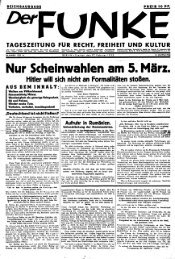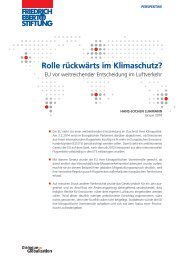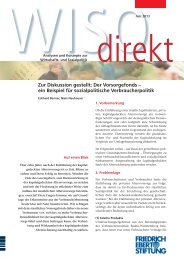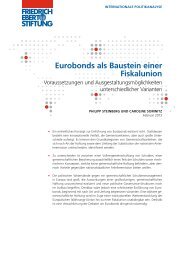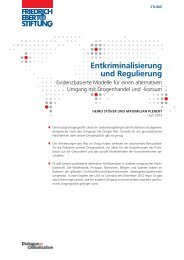Women - men - gender. - Bibliothek der Friedrich-Ebert-Stiftung
Women - men - gender. - Bibliothek der Friedrich-Ebert-Stiftung
Women - men - gender. - Bibliothek der Friedrich-Ebert-Stiftung
You also want an ePaper? Increase the reach of your titles
YUMPU automatically turns print PDFs into web optimized ePapers that Google loves.
10<br />
EDITORIAL<br />
Elisabeth Selbert<br />
to fi ght against a conscious or subconscious world view that is purely<br />
biological when it comes to un<strong>der</strong>standing the differing needs of <strong>men</strong><br />
and wo<strong>men</strong>.<br />
A glimpse into the past reveals how much wo<strong>men</strong> have achieved in a<br />
relatively short timespan in the Fe<strong>der</strong>al Republic of Germany. However,<br />
it also reveals that every small step forward had to be fought tooth and<br />
nail. The battle began with the constitutional debate in the parlia<strong>men</strong>tary<br />
council itself. The following wording on the issue of equality almost<br />
made it to the Basic Law: “The law must treat the same equally and difference<br />
according to its nature.” <strong>Wo<strong>men</strong></strong> were up in arms against the<br />
diction of this sentence and there was a wave of vehe<strong>men</strong>t protests,<br />
supported by even conservative newspapers. The phrase would have<br />
meant, that while civil rights would have been guaranteed to wo<strong>men</strong>,<br />
they would not have enjoyed equal rights in the private sphere. It was<br />
above all the Social democrat, Elisabeth Selbert, who was responsible for<br />
saving the issue of wo<strong>men</strong>’s equality. She succeeded in inserting the<br />
equally simple but explicit sentence: “Men and wo<strong>men</strong> shall have equal<br />
rights”. The Adenauer govern<strong>men</strong>t, however, resisted breathing life into<br />
this Article of the Basic Law. The necessary revisions to the civil code<br />
were delayed. The Fe<strong>der</strong>al Constitutional Court repeatedly forced<br />
reforms, as the entire Marriage and Family Law had become unconstitutional<br />
since the passing of the Basic Law.<br />
Before the Equal Rights Act fi nally came into effect in 1958, the life<br />
situa tion of wo<strong>men</strong> was as follows: married wo<strong>men</strong> did not even have<br />
the right to dispose of money they had earned themselves as they<br />
wished. The husband had the right to terminate the job of his wife or<br />
could force her to take up a job. Un<strong>der</strong> a so-called Double Income Law,<br />
married wo<strong>men</strong> civil servants could be dismissed from their jobs. In case<br />
of a lack of consensus, <strong>men</strong> had the last word on all issues: whether their<br />
child was to be named Hans or Franz, whether to move to a new area,<br />
whether the children should attend grammar school (Gymnasium),<br />
whether a washing machine should be purchased – the fi nal word on the<br />
FRIEDRICH-EBERT-STIFTUNG



